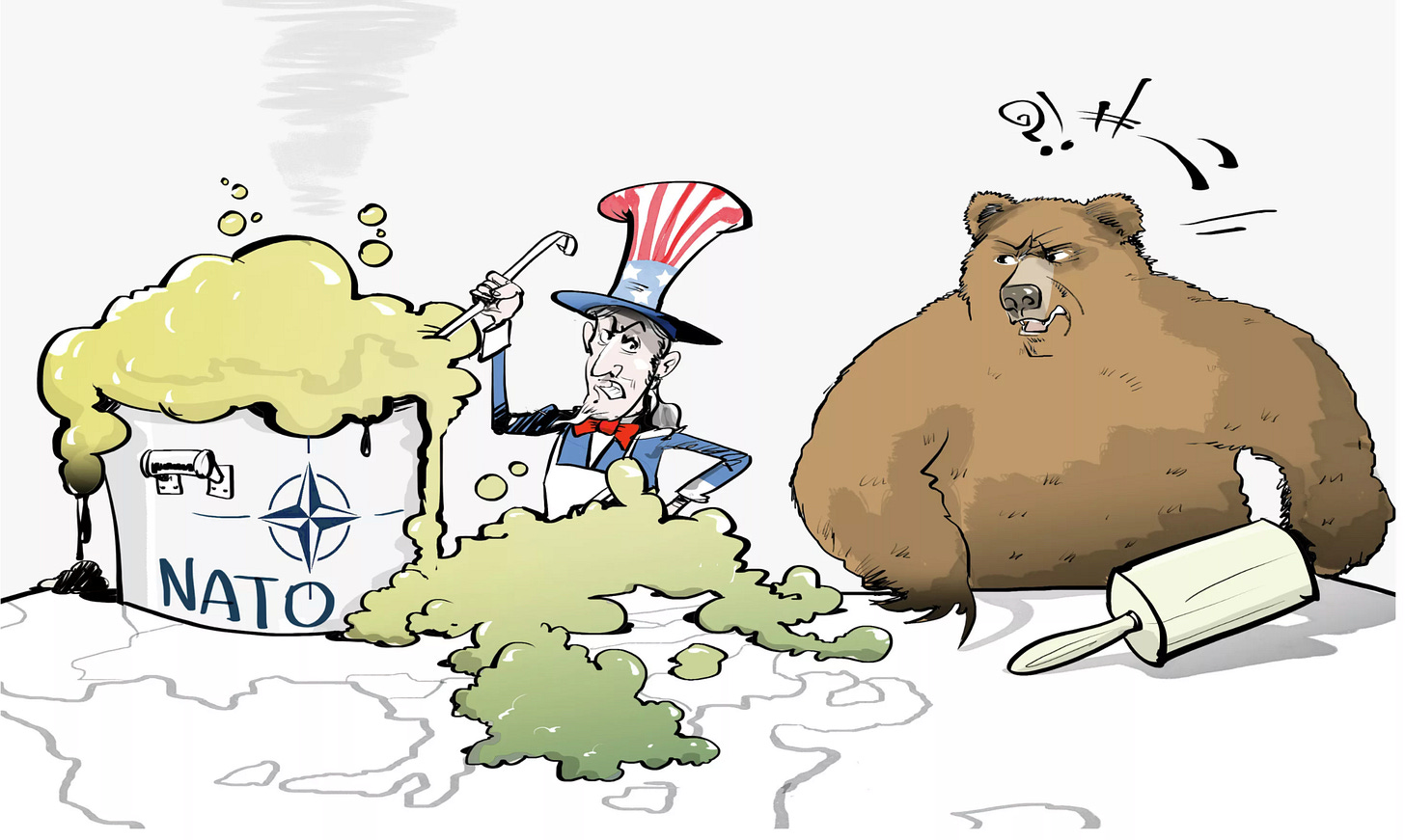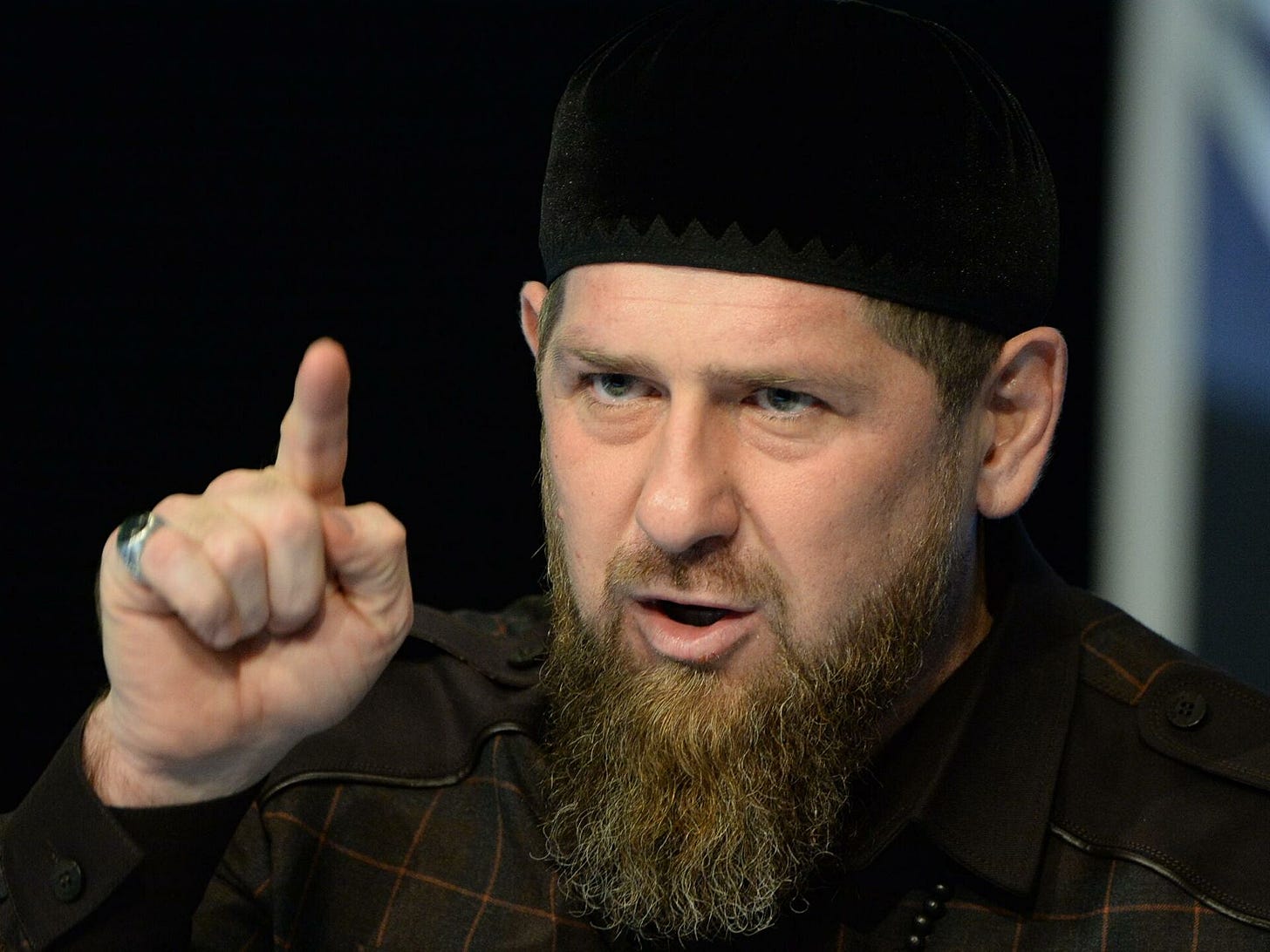The West employs Putin’s tactics. Above-the-law man. Fighting inflation requires sacrifice
January 25, 2022
The West employs Putin’s tactics
The meeting between U.S. Secretary of State Antony Blinken and Russian Foreign Minister Sergei Lavrov at the end of last week was initially positioned as a “technical” discussion, needed to clarify starting negotiating positions. However, as early as the weekend, the situation around Ukraine began to sharply escalate with no news from Russia: No new troop movements, no hawkish statements by politicians.
First, the British authorities made a statement about the Kremlin’s alleged preparation to replace Ukraine’s Prime Minister and promote Yevgeny Muraev, who can be classified as a dove in relations with Russia, to this post. Then the U.S., Britain, Germany, Australia, and Sweden began evacuating some of their diplomatic missions from Kyiv, explaining this by the growing threat of a Russian military operation against Ukraine. On Monday morning, NATO reported that France, Denmark, the Netherlands, and Spain had sent their ships and planes to Bulgaria, Romania, and Lithuania to monitor the situation. Then, the Pentagon reported that it was ready to deploy 8,500 U.S. soldiers to Europe within five days after the decision.
The most surprising was the announcement of the change of the Ukrainian government. According to the Constitution of Ukraine, the appointment of the head of government should be suggested by the president of the country. Still, the candidacy itself is nominated by the majority of the members of parliament (Rada). Thus, it is possible to replace the Prime Minister of Ukraine only if most of Parliament and the President agree. This is impossible in the current political situation, and a repeat of the “Crimean scenario“ is possible only after Russian troops occupy half of Ukraine, including Kyiv, and force Rada deputies to vote at gunpoint. But then we should be talking not about Russia preparing to change the government of Ukraine, but about Russia preparing a full-scale occupation of this country. Still, there is a big difference between these two scenarios.
The decision to evacuate embassy staff from Kyiv is in favor of the second scenario. If it were a limited offensive operation by Russian troops, Kyiv would be out of danger. Meanwhile, the Ukrainian Center for Defense Strategies estimates that the Russian forces concentrated along Ukraine’s borders are quantitatively and structurally incapable of executing an offensive operation of this scale. The Security and Defense Council of Ukraine holds the same view: Its Secretary, Oleksandr Danilov, speaking about the meeting results, said: “The situation that we have is quite clear to us, there is no reason for you and me to panic... The situation is absolutely under control; there is nothing new for us in what is happening.”
I continue to stand by my earlier opinion: The Kremlin’s actions are mainly aimed at maintaining tensions with the United States so that Washington recognizes the validity of Putin’s security concerns about Russia and begins meaningful negotiations on this topic. A secondary goal of Kremlin pressure is the continued destabilization of the political situation in Ukraine. If the West “pressures Kyiv to comply with the Minsk agreements” upon Putin’s request, it could lead to complete paralysis of the government in the country.
The logic of the West’s actions in this situation is well understood: In a judo fight, both opponents must maintain tension. We do not know how Vladimir Putin reacted to his opponent’s tighter grip, but we do know that the Russian market reacted adequately: On Monday, the ruble lost 2% and the Bank of Russia halted its purchases of the foreign exchange according to the budgetary rule; stock indices fell by 6%-8%.
Above-the-law man
A high-profile scandal involving the special status of the Chechen Republic, which is de facto received from the hands of Vladimir Putin, is unfolding in Russia.
On January 20, Chechen police officers arrived in Nizhny Novgorod (1,150 miles away) and presented a warrant for the forced confinement of retired Chechen Supreme Court Justice Saidi Yangulbayev and his wife as witnesses. According to the law, Yangulbayev has the status of a federal judge. His detention is impossible without the permission of the FSB, which the Chechen police officers did not receive. But that did not prevent them from breaking into his apartment and dragging the elderly woman out into the street without letting her get dressed or put on her shoes. (Footage of the detention shows her being dragged across a snow-covered yard barefoot.) She was then taken to Chechnya, where she was charged with assaulting a police officer and placed under arrest.
The next day, the head of Chechnya, Ramzan Kadyrov, explained straight what happened: Yangulbayev’s youngest son runs a Telegram channel. He talks about what is happening in Chechnya, criticizing Kadyrov for his actions.
“Each of the Yangulbayevs has gotten his hands dirty in the vile publications of the Telegram channel. The whole family has no concept of honor and dignity. No self-respecting person would sit in a channel and dutifully listen to his entire nation being humiliated with select curses and insults, much less help these scoundrels make money from donations. Anyway, I declare that this family belongs either in jail or underground. And that is no longer up to me.”
The next day Kadyrov called the members of Yangulbayev’s family terrorists and declared that they had to be detained and “if they put up resistance, they had to be destroyed as accomplices of terrorists.” On Monday, Kadyrov called Igor Kalyapin, a member of the Presidential Human Rights Council, and Elena Milashina, a journalist for Novaya Gazeta, terrorists, saying that “we have always eliminated terrorists and their accomplices.”
On January 21, presidential press secretary Dmitry Peskov said that he was unsure whether the media reports were true and referred all questions to the police. On January 24, he said that Kadyrov’s statements should not be considered “statements on behalf of the federal center,” but his opinion and advised Kalyapin and Milashina to go to court.
“Of course, any statements to them in this case can only be an expression of the opinion of the author of these statements. The only court may de-jure recognize them as terrorists. Such a decision, as far as we know, did not exist and does not exist at the moment.
“Here we need to investigate the statements, whether there are any direct threats against journalists and the mentioned member of the presidential council. Yes, he [Kadyrov] does use the word ‘accomplices of terrorists’ about these people. This is his right. And this is also the right of these same people to defend their honor and dignity.”
Dmitry Peskov said good and proper words. We just need to remember that there is no independent judiciary in Russia, that Ramzan Kadyrov is an element of the power vertical built by Vladimir Putin, and that many of Kadyrov’s opponents have been murdered in different parts of the world.
In September 2008, Ruslan Yamadayev, a former Duma deputy, was shot dead in Moscow near the government building; six months later, his brother, Sulim Yamadayev, was killed in Dubai. The brothers were active participants in military actions on the side of federal forces in Chechnya, and both received the highest award, the title of Hero of Russia. Sulim Yamadayev took an active part in the war against Georgia in August 2008.
In January 2009, Umar Israilov, Kadyrov’s former bodyguard, a key witness in the torture trial against the Chechen president initiated by the Berlin-based human rights organization European Center for Constitutional and Human Rights, was a key witness shot dead in central Vienna.
In August 2019, Zelimkhan Khangoshvili, who had participated in fighting in Chechnya on the separatists’ side and was close to then-Chechen President Maskhadov, was killed in the Little Tiergarten Park in central Berlin.
In February 2020, the body of Imran Aliyev, a Chechen-born blogger known as Mansur Stary, was found with stab wounds in Lille, France.
In July 2020, Mamikhan Umarov was shot dead in the suburbs of Vienna, having admitted shortly before that he had participated in killings outside Chechnya on Kadyrov’s orders.
Gazprom owes
Rosneft CEO Igor Sechin continues his attempts to achieve justice in his relationship with Gazprom. While Vladimir Putin is thinking about whether to allow Rosneft to export gas on the basis of an agency agreement with Gazprom, he has found a new topic. Sechin suggested that Prime Minister Mishustin switch to energy units adopted in the European Union in gas measurement instead of the volume units (cubic meters) traditionally used in Russia. According to Sechin, Rosneft loses more than 2.5 billion rubles ($35 mln., 5% of the company’s revenue) a year because Gazprom doesn’t consider the higher caloric content of the gas it delivers to the pipeline system.
Fighting inflation requires sacrifice
Although Russian Energy Minister Alexander Novak said in late December 2021 that his Ministry and oil companies had reached an agreement with the Finance Ministry on adjusting the parameters of the gasoline dampener, Deputy Finance Minister Alexei Sazonov said the Finance Ministry would support the amendments to the law only if they came into force on July 1. According to him, the adoption of the law, by which the amendments will take effect retroactively, from the beginning of January, will lead to “loss of budget revenues” of about 50 billion rubles ($660 mln., 0.2% of the budget-2022 revenues), which the Finance Ministry can’t agree with. It seems the Deputy Minister has forgotten that in the first half of the year, the Finance Ministry will receive 250 billion-300 billion rubles in additional revenues because the actual oil price will exceed the level specified in the law.
I can understand the government’s motivation to limit oil companies in the rate of indexation of the regulatory price of gasoline—President Putin has repeatedly pointed to the need to fight inflation by all available means. But I cannot understand why the Ministry of Finance goes out of its way to violate the agreements reached, wishing to receive paltry additional revenues to the budget, which it does not need. Of course, the Russian oil companies, their owners, and managers will not dare to engage in an open fight with the government. Still, the underhanded battle is often more effective in the bureaucratic system.
Things got terrible?
Apparently, the situation with coronavirus in Russia began to deteriorate rapidly. The number of daily registered cases exceeded 65,000 (the previous maximum was in November, 41,000). The Russian authorities have ceased publishing data on the number of tests—the last data refer to January 19. An indirect indication of a rapid worsening situation was Prime Minister Mikhail Mishustin’s order to transfer the government’s staff to a remote working model.
A challenging year is behind
Norilsk Nickel is one of the world’s largest mining and metallurgical companies. It ranks No. 1 in nickel and palladium, No. 2 in platinum, and No. 10 in copper production. The past two years have been bad for the company: Groundwater flooded two mines, causing production to stop; a roof collapse at the concentrator halted operations for weeks, and the destruction of a diesel fuel storage tank at the power plant led to a $2 billion fine from the environmental watchdog.
These problems appear to be behind as the company reported that its mines are back in full operation, with fourth-quarter production of nickel, palladium, and platinum up 25%, 18%, and 23%, respectively. Copper production recovered at total capacity in the third quarter of 2021.






